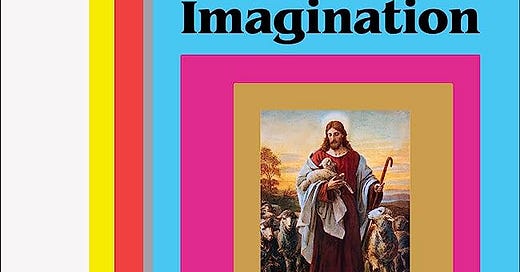Imagining the gospel, an author interview
Karen Swallow Prior talks about her brand new book, *The Evangelical Imagination*
Gentle reader,
Today, it’s my privilege to bring you an interview with Karen Swallow Prior, who talked with us about her new book The Evangelical Imagination: How Stories, Images, and Metaphors Created a Culture in Crisis (304 pages, Brazos Press).
Here’s the book’s description:
“In this book, acclaimed author Karen Swallow Prior examines evangelical hist…
Keep reading with a 7-day free trial
Subscribe to Church Blogmatics by Beth Felker Jones to keep reading this post and get 7 days of free access to the full post archives.




